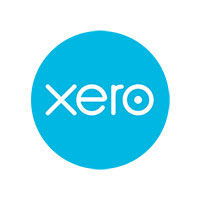
It’s that time of year again when the clock is rapidly moving to 31st January.
Yesterday HMRC reported that a third of self-assessment returns have yet to be filed. With an estimated 8m returns due, that is 2.67m returns which are still outstanding, with just one week to go.
Who needs to complete and submit a self-assessment return?
If you have received a notice to file a return then you must file a return. It is possible to get HMRC to agree that a return is not due, but by this time with only a week to go, to be safe from a penalty, you should file a return.
If you fall into any of the following categories, then you should also complete a return, even if you have not received a notice to file:
- Your income comes from other sources not collected through the PAYE system, in addition to your pension or wages – e.g. rental income, trust fund, etc.
- You are self-employed
- You have taxable gains – e.g. from the sale of investments or property (gains which exceed your annual exemption of £11,300)
- You are a company director
- You earn more than £100,000
- You earn more than £50,000 p.a. and receive child benefits
- You receive at least £10,000 in bank interest or dividends
(NB: if you earn less than this in interest you just need to declare it to HMRC so that your tax code can be updated, even if you are a basic rate tax payer) - You are a higher rate tax payer with savings income of more than £500
Getting started
If you haven’t completed a return before and haven’t done so already, you must register with HMRC, which can be done online, https://www.gov.uk/log-in-file-self-assessment-tax-return. This process does take some time to complete, typically 10 days, as an activation code has to be sent in the post. So if you have not registered yet, then you should do now and then phone HMRC on 0300 200 3310 to explain. This may well avoid any penalty for late notification.
What to include in your return
The following should be included in your completed return (this is not an exhaustive list):
- Employer or self-employed income including benefits
- Company dividends
- Interest from bank account savings
- Trust fund or settlement-related income
- Taxable benefits – received from an employer or the government
- Rental income
- Capital gains from the sale of assets – e.g. shares, land, or property
Tax relief
This may be claimable if you have paid into a pension scheme, made charitable donations, or invested in government-backed schemes set up to encourage investment in small companies.
Deadline and penalties
The deadline for filing returns where you have received a notice to file is midnight on 31st January.
The penalties for late tax returns are:
- an initial £100 fixed penalty, which applies even if there is no tax to pay or if the tax due is paid on time
- after 3 months, additional daily penalties of £10 per day, up to a maximum of £900
- after 6 months, a further penalty of 5% of the tax due, or £300, whichever is greater
- after 12 months, another 5% or £300 charge, whichever is greater.
There are additional penalties for paying late of 5% of the tax unpaid at 30 days, 6 months and 12 months.
For help and advice in completing your self-assessment, or if you would like us to file on your behalf or run a check on your return, talk to us at Baxter & Co without delay. You can contact us on 01689 877081, asking for Vinnie, John or Mark or by completing our online form.




